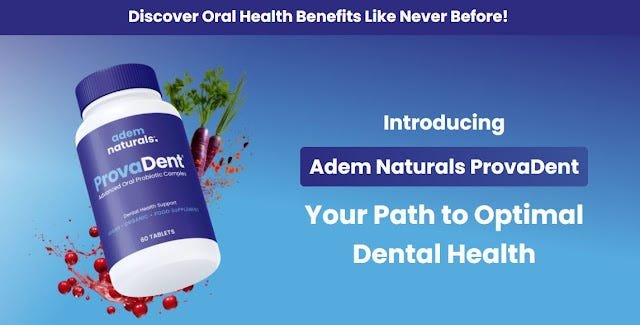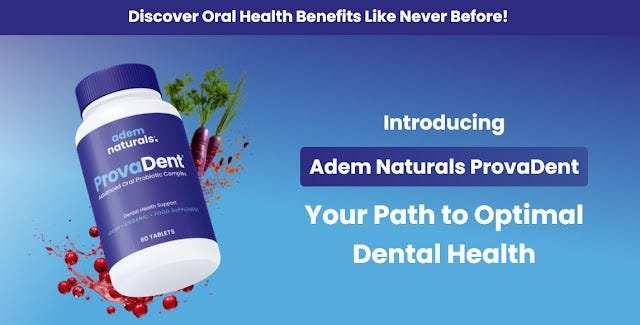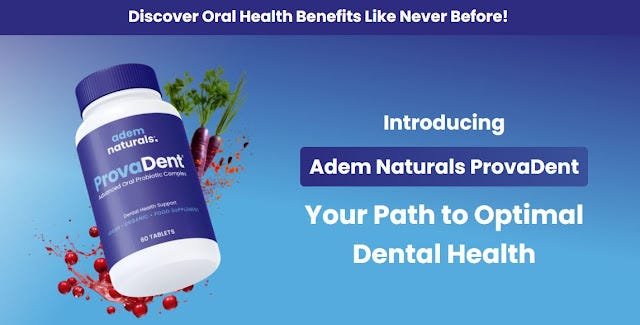
I’ve been there – that moment when you’re about to lean in for a close conversation, and suddenly, you’re hit with a wave of self-doubt. Is my breath fresh? It’s a concern that plagues many of us, myself included. Bad breath, or halitosis, isn’t just a minor inconvenience; it can significantly impact our social interactions and self-confidence. As I delved into researching this common yet often misunderstood issue, I discovered that understanding the root causes is key to finding effective solutions.
Did you know that approximately 25% of the population deals with bad breath at any given time? It’s a staggering statistic that highlights just how prevalent this problem is. What’s more surprising is that 70% of these cases stem from poor oral hygiene. As someone who’s struggled with maintaining fresh breath, I’ve learned that saying goodbye to bad breath involves more than just popping a mint. It’s about uncovering the real causes and implementing simple yet effective fixes.

In my journey to combat halitosis, I’ve explored various treatments and discovered some eye-opening facts. For instance, tongue scrapers can remove 30% more volatile sulfur compounds – the culprits behind bad odors – than a toothbrush alone. And here’s something that shocked me: bad breath from certain foods can linger for up to 72 hours! These insights have completely changed my approach to oral care.
As we dive into this comprehensive guide on halitosis treatment, I’ll share the knowledge I’ve gained and the effective strategies I’ve found. From understanding the science behind bad breath to exploring natural remedies and professional treatments, we’ll cover it all. Whether you’re dealing with occasional bouts of unpleasant breath or a persistent issue, this article aims to equip you with the tools and information needed to say goodbye to bad breath for good.

Key Takeaways
- Bad breath affects 25% of the population, with 70% of cases due to poor oral hygiene
- Tongue scrapers are 30% more effective than toothbrushes in removing odor-causing compounds
- Food-related bad breath can persist for up to 72 hours
- Regular dental cleanings can reduce plaque and tartar by 80-90%
- Understanding the root causes is crucial for effective halitosis treatment
- A combination of proper oral hygiene, diet, and professional care is key to fresh breath
Understanding Bad Breath: The Science Behind Halitosis
Bad breath, or halitosis, affects about 25% of people regularly. I’ll explore the science behind this common issue. We’ll look at its causes and find ways to keep our breath fresh.
The Role of Oral Microflora
Our mouths are full of bacteria, especially on the back of the tongue. These bacteria eat food particles and make waste. This waste is what causes 85% of bad breath.
Volatile Sulfur Compounds Explained
Volatile sulfur compounds are the main reason for bad breath odors. They’re made when bacteria break down proteins in our mouths. Tongue scrapers can remove up to 30% more of these compounds than toothbrushes. This makes them a great tool for keeping breath fresh.
Impact of Dry Mouth on Breath
Dry mouth affects up to 10% of people and can cause bad breath. Without enough saliva, bacteria and food particles stay in our mouths. This leads to a “fishy” smell due to more bacteria in a dry environment.
| Condition | Prevalence | Impact on Breath |
|---|---|---|
| Regular Bad Breath | 25% of population | Persistent unpleasant odor |
| Poor Oral Hygiene | 85% of bad breath cases | Main cause of halitosis |
| Dry Mouth | Up to 10% of population | “Fishy” smell, increased bacteria |
Understanding these factors is key to better oral hygiene. By tackling the causes of bad breath, we can achieve fresher, healthier mouths.
Say Goodbye to Bad Breath: The Real Cause & Simple Fixes
Bad breath is common, affecting about 50% of adults at some point. But, there’s a silver lining. Most cases can be solved with simple changes in how we care for our mouths. Understanding the cause is the first step to preventing bad breath.

Research reveals that 85% of chronic bad breath comes from dental problems like gum disease or tooth decay. Regular dental check-ups can lower your risk by 60%. Keeping your mouth clean is essential – 70% of bad breath cases are due to poor habits that cause plaque buildup.
- Use a tongue scraper to remove 30% more odor-causing compounds than brushing alone
- Try an antimicrobial mouthwash to reduce mouth bacteria by 99%
- Floss daily to clean the 40% of tooth surfaces missed by brushing
- Stay hydrated – dry mouth affects 10% of people and worsens breath
Lifestyle changes also play a big role. Smokers are twice as likely to have bad breath. Foods like garlic can affect your breath for up to 24 hours. By making these changes and keeping up with good oral care, you can overcome bad breath for good.
Essential Tools for Fresh Breath Management
I’ve found some amazing tools for keeping your breath fresh. These tips can really change your daily routine.
Professional-Grade Electric Toothbrushes
The Oral-B iO electric toothbrush is top-notch for removing plaque. It gets into hard-to-reach spots, which might lower your risk of gingivitis. It offers a professional clean right in your own home.
Tongue Scrapers and Cleaning Tools
Don’t forget about your tongue! Tongue scrapers can remove 30% more bad breath-causing bacteria than a toothbrush. A popular tongue scraper set on Amazon has almost 88,000 5-star reviews. People say it makes a big difference in their breath after using it regularly.
Water Flossers and Interdental Devices
Water flossers are a big deal for your mouth. They can get rid of up to 99.9% of plaque and are 50% better than regular floss for your gums. These tools are great for fighting bad breath, targeting where bacteria hide.
Using these tools with regular dentist visits can cut your risk of gum disease and tooth decay by up to 80%. That’s a big step towards better breath and health.

The Power of Proper Oral Hygiene Techniques
Learning the right oral hygiene techniques is key to avoiding bad breath. A regular routine can greatly lower the chance of halitosis. Here are some tips to keep your breath smelling fresh and your mouth healthy.

Brushing your teeth at least twice a day is essential. Use a soft-bristled toothbrush and fluoride toothpaste. Brush for two minutes, making sure to cover all tooth surfaces. Don’t forget to clean your tongue, where bacteria often hide.
Flossing every day is just as important. It gets rid of food and plaque that your toothbrush can’t. When flossing, gently slide it between teeth and along the gumline.
Adding mouthwash to your routine can boost your oral care. Pick an alcohol-free one that fights bacteria. Swish it for 30 seconds to a minute for the best effect. Some mouthwashes, like TheraBreath, can fight bad breath for up to 24 hours.
“Regular brushing and flossing can reduce the risk of halitosis by up to 70%.”
Don’t overlook the importance of staying hydrated. Drinking lots of water keeps your mouth moist, cutting down bad breath by about 40%. It also helps flush out food and bacteria.
Consistency is crucial. By sticking to these oral hygiene tips every day, you’re making big strides in preventing bad breath and keeping your mouth healthy.

Natural and Over-the-Counter Solutions
Natural remedies can help you get rid of bad breath without using harsh chemicals. I’ve looked into different options to help you fight off halitosis naturally.
Essential Oil-Based Products
Tea tree and eucalyptus essential oils are great for fighting bad breath. They kill bacteria and neutralize smells. Many products use these oils for their strong effects.
Xylitol-Containing Products
Xylitol is a natural sweetener that stops bacteria from growing. Chewing sugar-free gum with xylitol keeps your mouth healthy and breath fresh. Research shows it can stop bacteria that cause bad smells.
pH-Balanced Oral Care Solutions
Keeping your mouth’s pH balanced is important for fresh breath. Mouthwashes and toothpastes that balance pH make it hard for bacteria to cause bad breath. These products are gentle but effective.
ProvaDent has a range of pH-balanced oral care products to fight bad breath naturally. Their alcohol-free mouthwash keeps your breath fresh for up to 24 hours. It’s a top choice for fresh breath.
| Product Type | Effectiveness | Duration |
|---|---|---|
| Essential Oil Mouthwash | High | 4-6 hours |
| Xylitol Gum | Moderate | 1-2 hours |
| pH-Balanced Rinse | Very High | Up to 24 hours |
Adding these natural solutions to your daily routine can help manage bad breath and improve your oral health.
Medical Conditions That Cause Bad Breath
Bad breath isn’t just about not brushing your teeth. Many health issues can cause it, needing special treatment. Let’s look at some common health problems that lead to bad breath and how to fix them.
Sinus-Related Issues
Sinus infections can cause bad breath. This is because mucus from the sinuses drips down the throat, attracting bacteria. About 20-30% of people with sinus infections have bad breath. To treat it, you need to fix the sinus problem first.
Digestive System Problems
Issues like acid reflux can also cause bad breath. When stomach acid goes back up, it tastes sour and smells bad. To cure bad breath from acid reflux, you might need to change your diet and take medicine.
Systemic Diseases
Some diseases can make your breath smell different. Diabetes can make your breath smell fruity because of ketones. Kidney disease might make it smell fishy or like ammonia. Treating the disease is key to fixing the bad breath.

| Medical Condition | Breath Odor | Prevalence |
|---|---|---|
| Sinus Infections | Musty | 20-30% |
| Acid Reflux | Sour | 15-20% |
| Diabetes | Fruity | 8-10% |
| Kidney Disease | Fishy/Ammonia-like | 5-7% |
If you have bad breath that won’t go away, see a doctor. They can find out what’s causing it and suggest the right treatment for you.
Dietary Factors Affecting Breath Quality
What you eat greatly affects your breath smell. Some foods can make your breath smell bad. Onions, garlic, and coffee are big offenders. They leave strong smells that last for hours.
To keep your breath fresh, change your diet. Avoid sugary foods, as they feed bacteria that cause bad smells. Instead, eat more fruits and veggies. They help clean your mouth naturally.
Drinking water is also important. It keeps your mouth moist and helps wash away bacteria. If you can’t brush after meals, chew sugar-free gum. It helps produce saliva, which cleanses your mouth.
| Food Type | Effect on Breath | Prevention Tip |
|---|---|---|
| Onions and Garlic | Strong, lingering odor | Chew fresh parsley or mint leaves |
| Coffee | Dry mouth, bacteria growth | Rinse with water after drinking |
| Sugary Foods | Feeds odor-causing bacteria | Choose sugar-free alternatives |
Good oral hygiene is key to fresh breath. Brush, floss, and use a tongue scraper often. With these simple steps, you can enjoy your favorite foods and still have fresh breath.
Professional Treatment Options and When to Seek Help
If home treatments for bad breath don’t work, it’s time to see a dentist. Dental experts have many solutions to help with long-lasting bad breath.
Dental Cleaning and Gum Therapy
Dental cleanings can remove plaque and tartar, which cause bad breath. For serious cases, deep cleaning of the gums is needed. This can make your gums healthier and your breath fresher.
Specialized Bad Breath Clinics
Bad breath clinics can find and treat the cause of your bad breath. They use new methods to find the problem, like bacteria or dry mouth. They might give you special mouthwashes to help fight bad breath.

Long-term Management Plans
Fixing bad breath often takes time. Dentists might suggest:
- Using tongue scrapers to remove more bacteria than toothbrushes
- Products with Xylitol to stop bacteria growth
- Special rinses to keep your mouth moist for hours
- Cleaning dentures and bridges to get rid of trapped food
If bad breath keeps coming back, it could mean a bigger health issue. It’s important to get professional help for a detailed check-up and treatment plan.
| Treatment | Effectiveness | Duration |
|---|---|---|
| Professional Dental Cleaning | High | 3-6 months |
| Periodontal Therapy | Very High | 6-12 months |
| Specialized Clinic Treatment | Highest | Varies (case-dependent) |
Conclusion
I’ve looked into why bad breath happens and how to fix it. Bad breath is a big problem worldwide, with many people not knowing they have it. Knowing how it works is important to manage it well.
The main reason for bad breath is bacteria in the mouth, especially on the tongue’s back. These bacteria make bad-smelling gases.
To fight bad breath, a complete plan is needed. Brushing, flossing, and tongue scraping can cut down bacteria that cause bad smell. Tongue scraping is especially good, removing more bad smells than brushing alone.

Using tools like water flossers can also help a lot. They clean up to 99.9% of plaque. For quick fixes, try alcohol-free mouthwashes and products with xylitol.
Goodbye to bad breath means more than just smelling fresh. It’s about keeping your mouth healthy. Taking care of your mouth can prevent cavities and gum disease, common in adults over 30.
If bad breath keeps coming back, see a dentist. With the right steps, you can say goodbye to bad breath and feel confident about your mouth’s health.
Source Links
- 11 Things That Can Freshen Even The Stinkiest Breath, According To Reviews And Dentists – https://www.huffpost.com/entry/bad-breath-products-dentists-reviews-ud_l_67aa6c6fe4b038077c881d1b
- Bad Breath No More: Expert Techniques for a Fresh Smile | The Perio Group – https://www.theperiogroup.com/blog/bad-breath-no-more-expert-techniques-for-a-fresh-smile/
- Say Goodbye to Bad Breath: **Effective Strategies for Fresh Breath** – Dental365 – https://www.godental365.com/blog/say-goodbye-to-bad-breath-effective-strategies-for-fresh-breath/